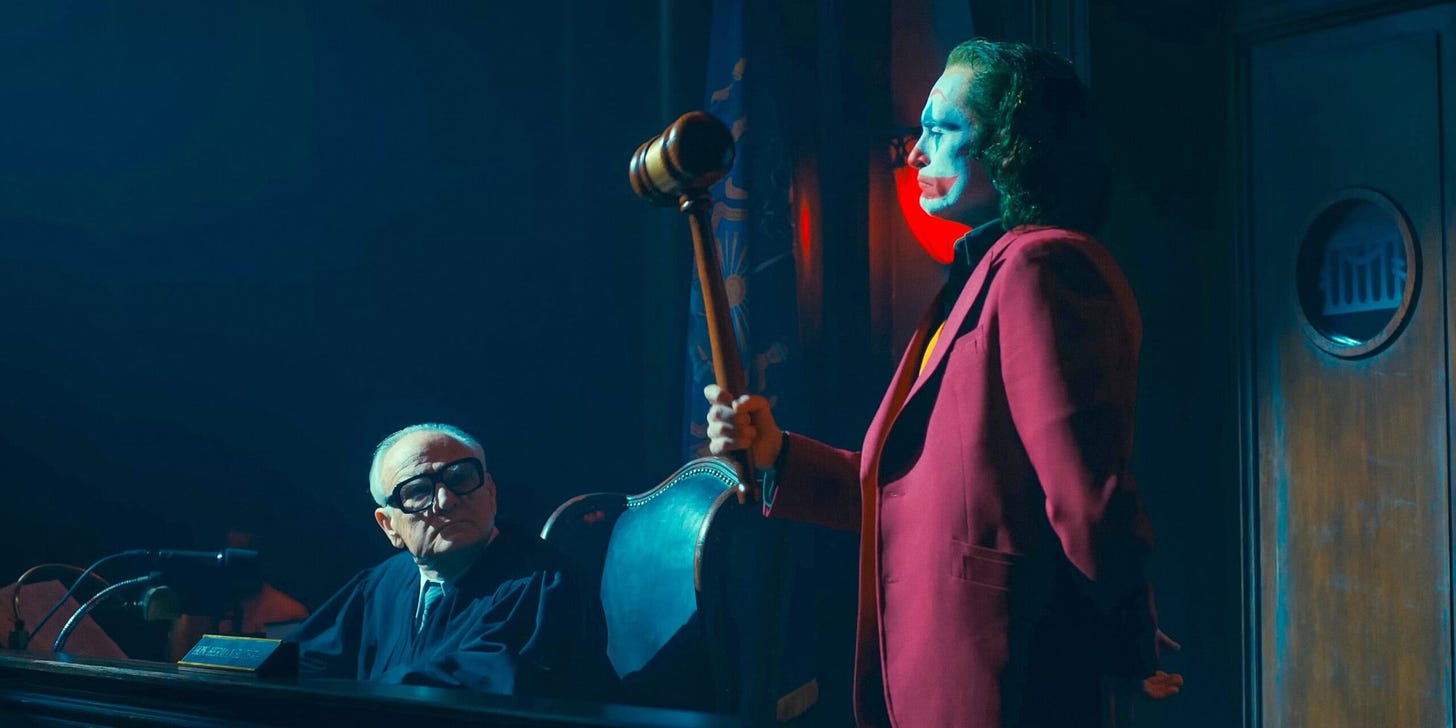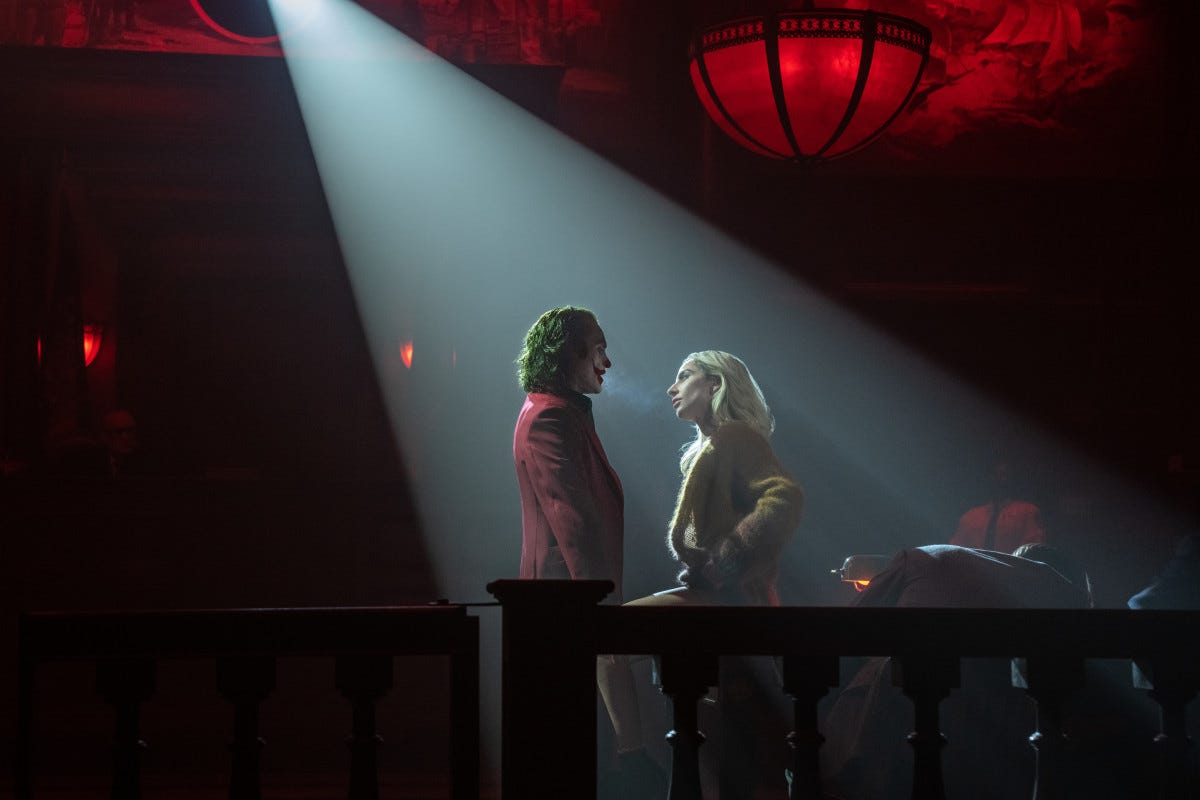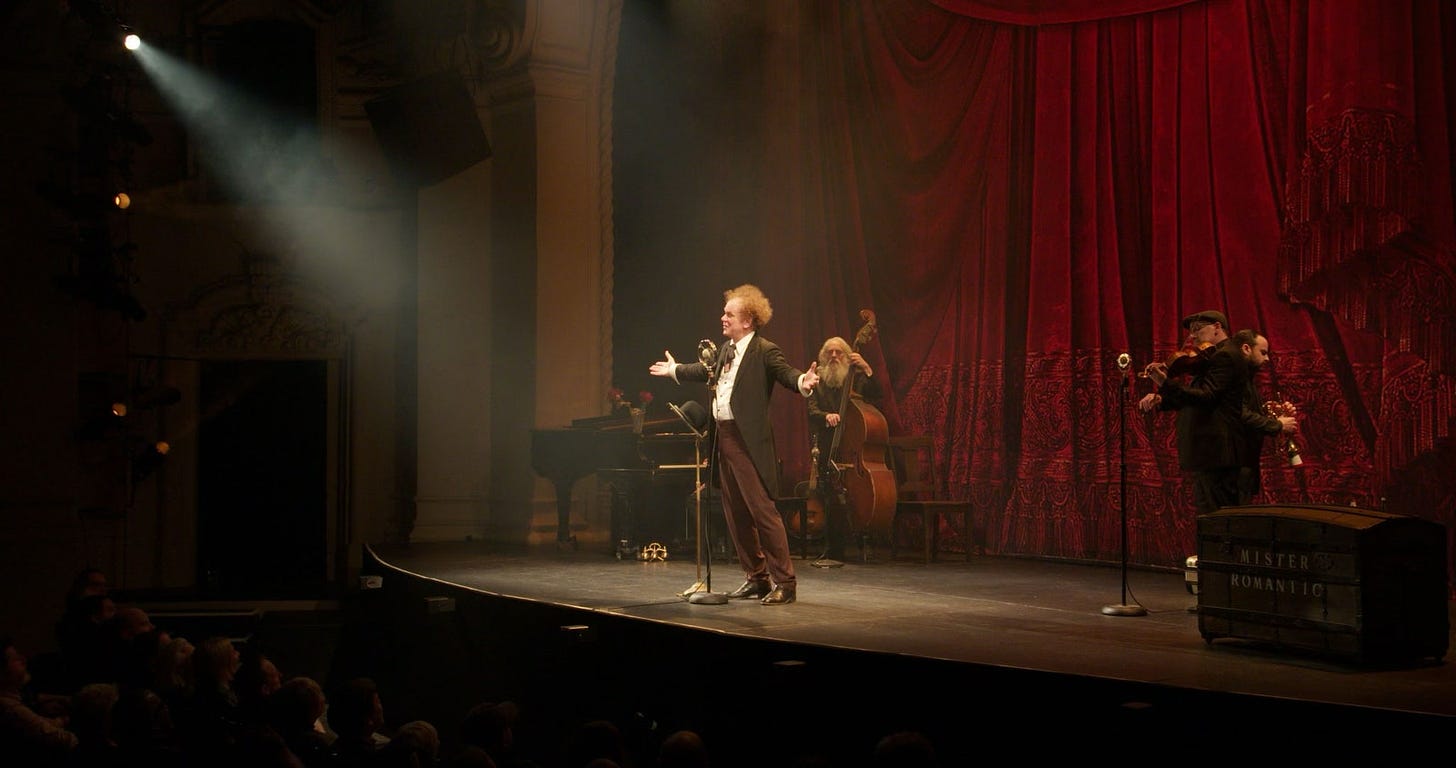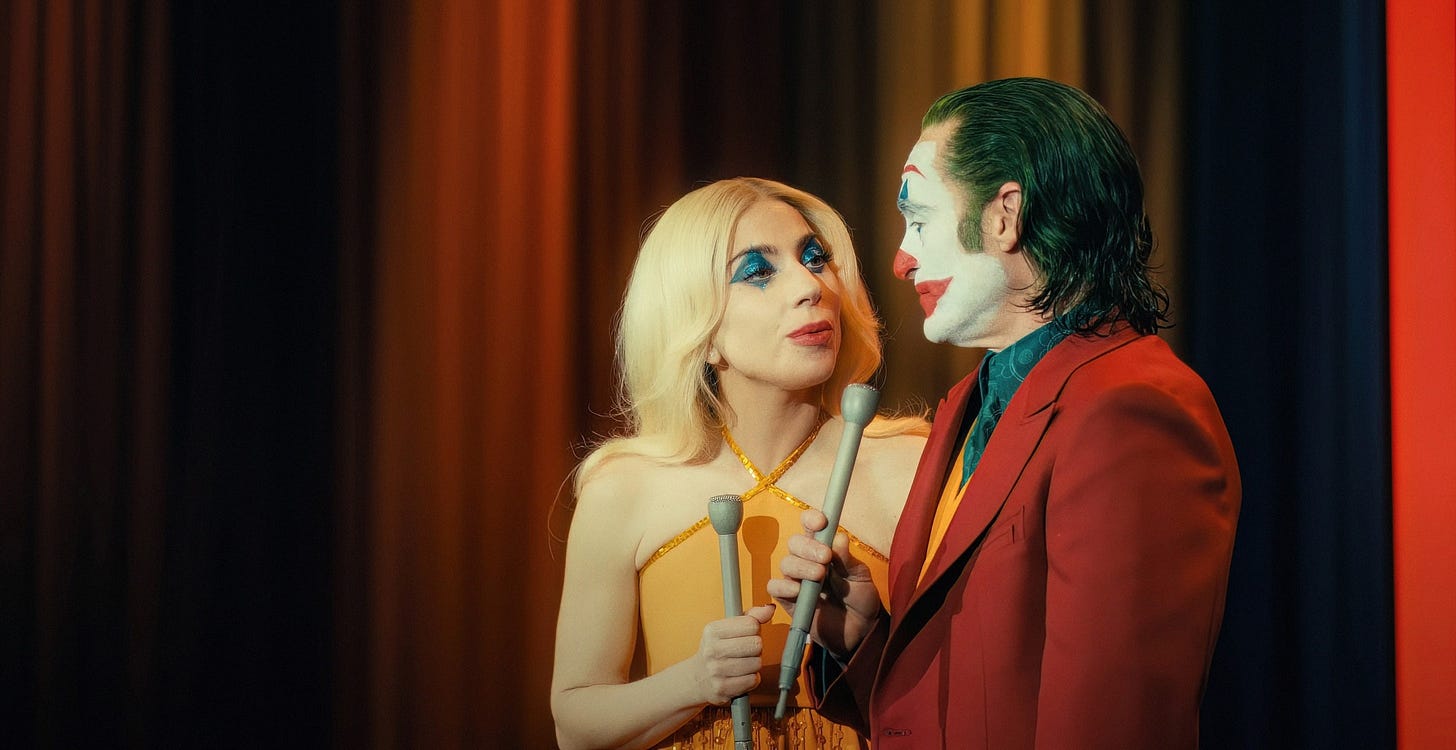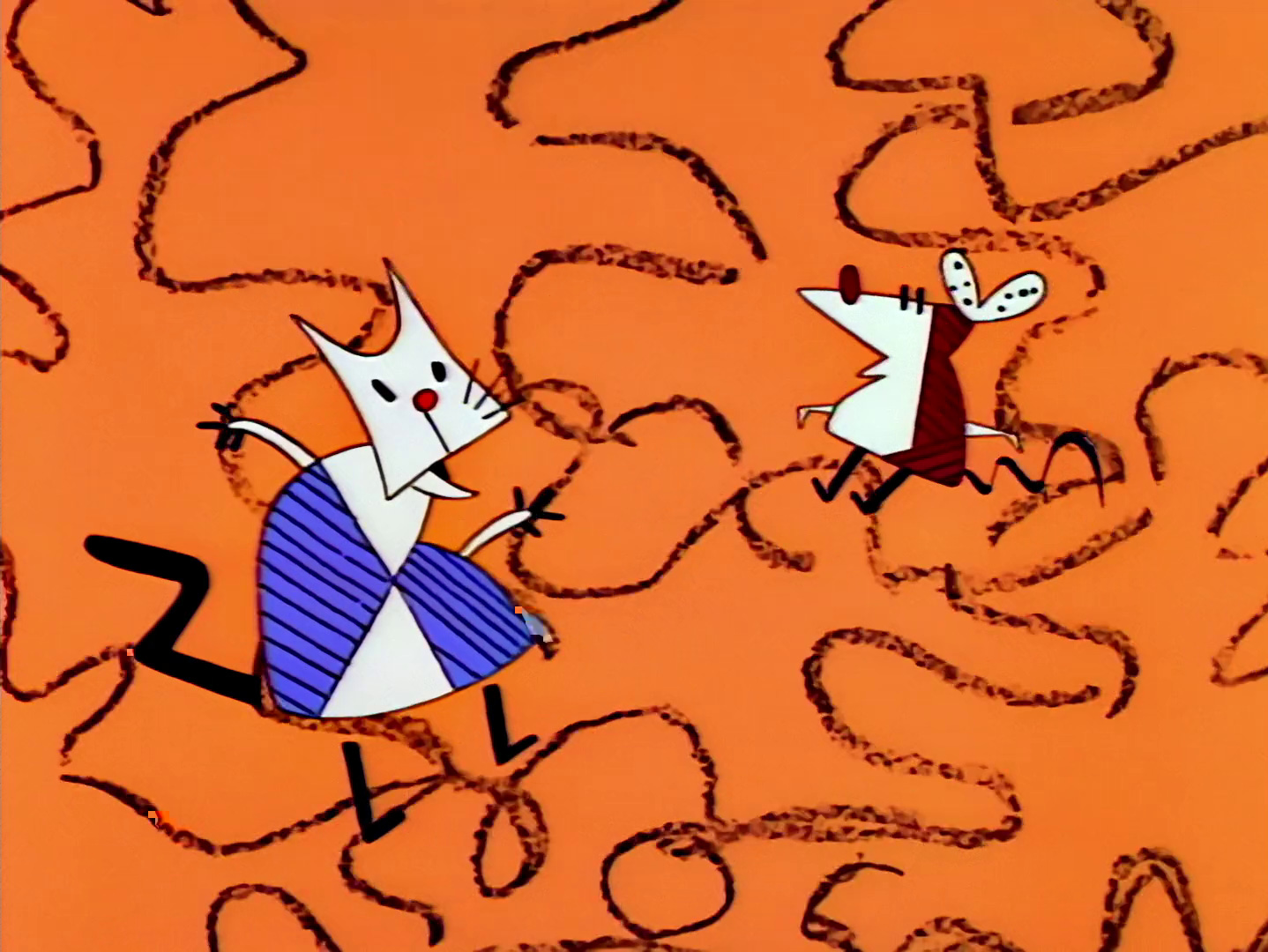How 'Folie à Deux' became DC's 'Worker and Parasite'
A.k.a I never expected to have this much to say about a 'Joker' sequel
Even though I wasn’t a big fan of the original Joker, I recognize that I also wasn’t really the target audience for it. If it had been released five years earlier, I absolutely would have been; that was the point at which I was getting a bit tired of formulaic summer blockbusters and starting to seek out films with a little more depth. If you’re the kind of person that sees the first film and says “of course a pool seems deep to someone who’s never been in the ocean”, you need to understand that it wasn’t really made for you, either; the first Joker was made for someone goes into it because they’ve seen The Dark Knight, and afterwards goes out and rents Taxi Driver.
As much as the first film may get chastised for being ‘safe’ or ‘obvious’, I can still somewhat empathize with the executive at Warner Brothers who read an early draft of the script, featuring a scene of the titular character murdering someone with a pair of scissors, and responded with, “they know we sell Joker underwear at Target, right?”
Five years go by, and I have a ticket to Joker: Folie à Deux, largely because I happened to be close to one of the handful of theaters that were playing it in IMAX 70mm - a bigger version of IMAX, using actual film instead of digital projection. I got an email from the theater a few hours before the show letting us all know the 1.8 ton behemoth of a projector needed to run the oversized reels was experiencing a technical issue, and that I would have to either get a refund or reschedule for a later date. Amidst a growing wave of almost unprecedentedly negative reactions from both critics and audiences alike, I decided to opt for the refund. Only a few nights ago did I end up watching it after it had hit streaming, and found myself oddly entranced by a film going out of its way to do everything but be entertaining.
Now that the dust has settled, the overall consensus seems to be that Folie à Deux was little more than a middle-finger to the fans of the original, but after seeing it, I disagree; I believe what we ended up with is not so much attributable to malice as much as as a commentary on real-world events being consumed as entertainment.
Most of Folie à Deux makes sense when you realize the project started as Phillips and Phoenix attempting to turn the film into a live Broadway show. Due to the pandemic, however, this never came to fruition. Joaquin, having recently made headlines for exiting a project only five days before it was set to begin shooting, liked working with Todd and was willing to do so again. Warner Brothers gave the two a significant level of creative control over the project, even going to far as to not test screen the film in advance - nearly unprecedented for any commercial studio film. This lead to the live stage idea and the sequel eventually converging into the film we got. The real question is how much the end result was based on an attempt to recreate the initial vision for the stage production, versus a desire to simply aggravate fans of the original.
I was recently listening to an episode of Conan O’Brien Needs a Friend where the guest was John C. Reily. In the interview, Reily discusses a new one-man show he had been working on called Mister Romantic.
The vaudeville-style show follows the titular character emerging from a trunk, singing love songs and telling jokes to the crowd, hoping to woo someone enough to fall for him by the end of the show, or else he’s forced to return to his trunk once again. The show has only been done a handful of times as a live stage performance, as was the original plan for Folie à Deux. Now imagine if Adam McKay decided to adapt Mister Romantic as a sequel to Step Brothers.
A departure this drastic is inevitably going to lead to the film being seen as ‘hostile’ towards audiences, whereas I see it more as bluntly honest about the ways in which the first film was misunderstood. The end of the first film would not be the logical conclusion for the events that transpired; Arthur would not be known as a hero, would not inspire a meaningful revolution, and would not escape into running around the halls of Arkham like a free-spirited cartoon character. Folie is a depiction of the consequences that feel more realistic; he would be viciously beaten, forced out of his constant escapism, dragged through a miserable trial and unceremoniously killed.
There was a video showing that if you started both films at the same time, there were a number of obvious parallels, such as the pivotal testimonies aligning with their characters respective appearances in the first film. More obvious, however, is that the courthouse explosion at the sequels’ climax occurs the exact time the first film goes to credits. In the most literal and figurative way, it is blowing up everything the first film stood for. I wanted to give credit to the original uploader, but unfortunately I was totally unable to track it down again (it’s even gone from my YouTube history, which suggests it may have been deleted). After replicating the edit myself, however, I can confirm this is accurate. Whether this means anything, however, is for you to decide.
The most blatant the film gets about this attitude is its reveal of Two-Face; barely visible and out of focus during what should be his pivotal close-up, as if to say, ‘Yes, you saw the name “Harvey Dent”. You know who this is, you know what happens to him, you’ve seen what happens to him, so why do you need to see it again?’ In this world, Harvey Dent is just a lawyer who was disfigured in an explosion. If you want a more grounded and realistic depiction of these characters, this is it. You have to admit, there is something undeniably punk about taking a character known for causing violent mayhem, handing him a cigarette, and have him sing about his feelings. Todd Phillips is basically putting on a tea party with your action figures.
It was hard to deny the relevance of the films core thesis of real-world events usurping the place of entertainment in the ongoing aftermath of the United Healthcare situation, another instance of a murder being spun into a sort-of inadvertent martyr figure. The presence of Harley in the film serves as an example of the inexplicable romantic attraction towards violent criminals, such as the Boston bombers or Dahmer. Her interest is not in him, but in the persona that she identifies with, the image of him created by the media. In unrelated news, here’s a clip of of young women in the Saturday Night Live audience cheering at the mention of Luigi Mangione’s name.
Especially strange was when Arthur gets into a car following the explosion, the news report on the radio mentions that the explosion was caused by a car bomb - eerily reflecting a similar incident in Las Vegas that had just occurred a day prior, motivated by a belief that the American populace only responds to acts of violence and spectacle.
The denial of audience expectations is a tactic that works when done with deliberate intention; in this case, to hold up a mirror to the first film and its reception, audience entitlement, the glorification of violent criminals, and the consumption of real news as entertainment; a massive budget version of Krusty the Klown airing an obscure European cartoon named Worker and Parasite to an audience that was expecting to see Itchy and Scratchy. By the end, however, there was only one cigarette-smoking clown the audience could relate to; a bewildered Krusty, staring at an empty theater, asking out loud to no one in particular, “…what the hell was that?”




